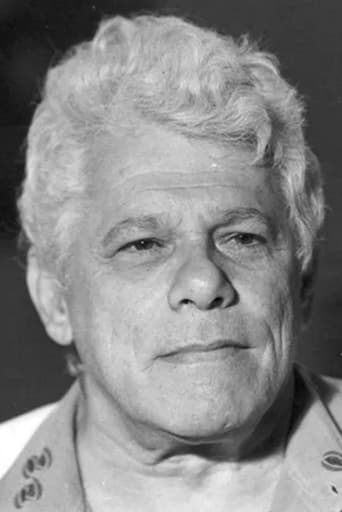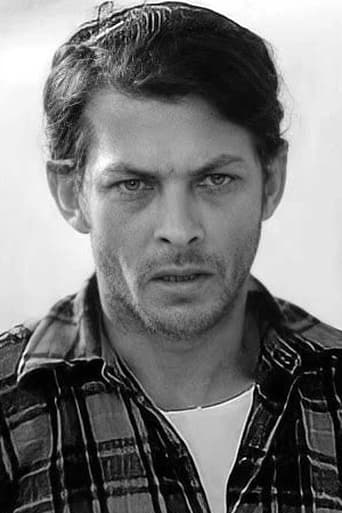Listonixio
Fresh and Exciting
Reptileenbu
Did you people see the same film I saw?
Fatma Suarez
The movie's neither hopeful in contrived ways, nor hopeless in different contrived ways. Somehow it manages to be wonderful
Juana
what a terribly boring film. I'm sorry but this is absolutely not deserving of best picture and will be forgotten quickly. Entertaining and engaging cinema? No. Nothing performances with flat faces and mistaking silence for subtlety.
Jackson Booth-Millard
I found this Brazilian film included in the book 1001 Movies You Must See Before You Die, it is based on a famous stage play, it sounded like an interesting story, and was well rated by critics, so I looked forward to trying it. Basically Zé do Burro (Leonardo Villar) is a landowner from Nordeste, he has only one worldly possession, his best friend, a donkey named Nicholas, who he considers to have a soul. One day, the donkey is seriously wounded and falls deathly ill, out of despair, during a Candomblé session, dedicated to the goddess Yansan, Zé vows to carry a cross as large as Christ's, to the altar of the Saint Bárbara Church in Salvador, Bahia. After his donkey does recover from his illness, Zé builds a large cross with his own hands and tools, and begins his journey on foot to Bahia, accompanied by his wife Rosa (Glória Menezes). Zé arrives outside the steps of the church, which is closed, he is forced to wait for it to open, local pimp Bonitão (Geraldo Del Rey) is the only person to come and greet them, he offers to take Rosa to a small hotel, while Zé keeps his promises and stays with the cross. The local priest Father Olavo (Dionísio Azevedo) greets Zé on the steps, he is surprised but satisfied with the faith shown by him, until the detail that the promise had been done in a Candomblé session comes up in conversation. The priest berates Zé for impiety, believing his pledge and reasons behind it are "pagan", and forbids him from entering the church, soon many people attempt to manipulate the innocent and naïve Zé. The local Candomblé worshippers want to use him as a leader against the discrimination they suffer from the Roman Catholic Church, and sensationalist newspapers transform his promise to give away his land into a "communist". A crowd surrounds the church steps, the police are called by the zealots, when Zé tries to force the door to the church using the cross as a battering-ram, they order him to leave, but he faces up to them. Then a brawl breaks out, a gunshot is heard, the crowd cease fighting when they see that it is Zé who has been shot by the police, to prevent his way into the church. Zé-do-Burro lies dead by his cross, it's then that the black community, Candomblé worshippers, take his body, put him on the cross, and carry him inside the church to the altar of his favourite saint, they are unopposed by the priest or anyone. Also starring Norma Bengell as Marly, the prostitute, Othon Bastos as the Reporter and Antônio Pitanga as Coca, the capoeira player. This black-and-white picture is a really powerful story, a simple man making a religious vow who will not rest until it is done, having to contend with the impoverished people questioning whether his intentions are truly for God, as well as corruption and political issues, and the hounding of the media, a brilliantly provocative, fascinating and gripping drama. It was nominated the Oscar for Best Foreign Language Film (the Brazilian and South American film to be nominated). Very good!
gustavo_ma92
Usually, the books are better than the movies that are made based on them. But, on this case, of O Pagador de Promessas, I really can't say which one is better. I'm starting to think the movie is better than the book, because the director, Anselmo Duarte, has added many things that weren't on the book, and they only contribute to improve the story. For example, the TV reporter and the people who go ask Zé do Burro for miracles. That part reminded me of that scene in Forrest Gump in which Forrest runs for three years and people start following him, thinking he was some kind of wise prophet, when he simply wanted to run. Actually, the whole story of O Pagador de Promessas is kind of that. A guy who only wants to pay his promise to a saint and is made a prophet, a "new Christ", a devil worshiper, and ends up dying because of some people's prejudice towards aspects that integrate their own culture.
Anakitsuke Hidetora
It's really a shame that this masterpiece is constantly overlooked by All-Time Greatest Lists, even though it won the prestigious Palm d'Or at Cannes."The Bicycle Thieves" is frequently cited as the greatest entry into Social Cinema, yet unfortunately the public and the critics seem to forget the sheer beauty that "The Payer of Promises" is. While "Bicycle"'s influence is undeniable, "Payer" goes beyond that.Honest, multi-layered and amazingly contemporary, this is one of those movies that have admirably stood the test of time - specially if one considers the difficulty it is making Films in Brazil.Featuring incredibly believable and dramatic performances, a rich, vivid setting and neo-realist technique employed in an elegant and sincere manner, this movie should not be missed. I found impressive how well the film flows - nothing is there gratuitously and the pacing is pitch perfect.The amazing strength, courage and valor of Brazilian Cinema is a force to be reckoned with, as we take a look at the works of Film Makers such as Peixoto, Duarte, Rocha, Candeias, Bressane, Khouri, Salles and most recently, Meirelles. To list a very short list.In fact, I can say without fear that it is a better Film than The Bicycle Thieves. It is easily one of the Best Brazilian Films in History - if not one of the Best in Film History. Period.
Artemis-9
Others already mentioned that the film's production values are low - and that's true. But the story of Nicolau (not credited - but it's the donkey's name) and Jack, his owner has more to it than you may think. At first, it's like a comedy about a credulous man who likes his donkey to the point of promising an incredible masochist thing to his God, if the donkey survives an illness. Than, as Jack fulfills his promise, and he gets to look so much like the historical figure of Jesus Christ, trouble erupts. Conservative priests and social-minded, exploitative newspapermen fight over a donkey and a cross, and the problem turns out as a satirical approach to the 1960s socialist class-struggle in Latin America. The story is set in Brazil, but it could be elsewhere at the epoch, though you have plenty of folk music and some dancing that are absolutely a Brazilean trademark. Not to be missed, even if the copy is slightly chopped off by the 1962 military censorship in Brazil.



